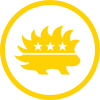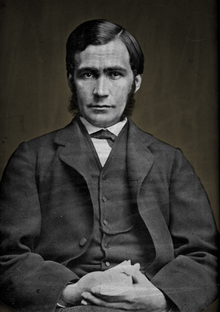The Liberalism portal
Liberalism is a political and moral philosophy based on the rights of the individual, liberty, consent of the governed, political equality, right to private property and equality before the law. Liberals espouse various and often mutually warring views depending on their understanding of these principles but generally support private property, market economies, individual rights (including civil rights and human rights), liberal democracy, secularism, rule of law, economic and political freedom, freedom of speech, freedom of the press, freedom of assembly, and freedom of religion, constitutional government and privacy rights. Liberalism is frequently cited as the dominant ideology of modern history.
Liberalism became a distinct movement in the Age of Enlightenment, gaining popularity among Western philosophers and economists. Liberalism sought to replace the norms of hereditary privilege, state religion, absolute monarchy, the divine right of kings and traditional conservatism with representative democracy, rule of law, and equality under the law. Liberals also ended mercantilist policies, royal monopolies, and other trade barriers, instead promoting free trade and marketization. Philosopher John Locke is often credited with founding liberalism as a distinct tradition based on the social contract, arguing that each man has a natural right to life, liberty and property, and governments must not violate these rights. While the British liberal tradition has emphasized expanding democracy, French liberalism has emphasized rejecting authoritarianism and is linked to nation-building. (Full article...)
Selected article -

The Libertarian Party (LP) is a political party in the United States that promotes civil liberties, non-interventionism, laissez-faire capitalism, and limiting the size and scope of government. The party was conceived in August 1971 at meetings in the home of David F. Nolan in Westminster, Colorado, and was officially formed on December 11, 1971, in Colorado Springs. The organizers of the party drew inspiration from the works and ideas of the prominent Austrian school economist Murray Rothbard. The founding of the party was prompted in part due to concerns about the Nixon administration, the Vietnam War, conscription, and the introduction of fiat money.
The party generally promotes a classical liberal platform, in contrast to the Democratic Party's modern liberalism and progressivism and the Republican Party's conservatism. Gary Johnson, the party's presidential nominee in 2012 and 2016, claims that the Libertarian Party is more culturally liberal than Democrats, and more fiscally conservative than Republicans. Its fiscal policy positions include lowering taxes, abolishing the Internal Revenue Service (IRS), decreasing the national debt, allowing people to opt out of Social Security and eliminating the welfare state, in part by utilizing private charities. Its cultural policy positions include ending the prohibition of illegal drugs, advocating criminal justice reform, supporting same-sex marriage, ending capital punishment, and supporting gun ownership rights. (Full article...)Selected biography -

List of selected biographies
|
|---|
Selected quote
General images
Subcategories
Related portals
WikiProjects
Topics
Recognized content
Associated Wikimedia
The following Wikimedia Foundation sister projects provide more on this subject:
-
Commons
Free media repository -
Wikibooks
Free textbooks and manuals -
Wikidata
Free knowledge base -
Wikinews
Free-content news -
Wikiquote
Collection of quotations -
Wikisource
Free-content library -
Wikiversity
Free learning tools -
Wiktionary
Dictionary and thesaurus
























































